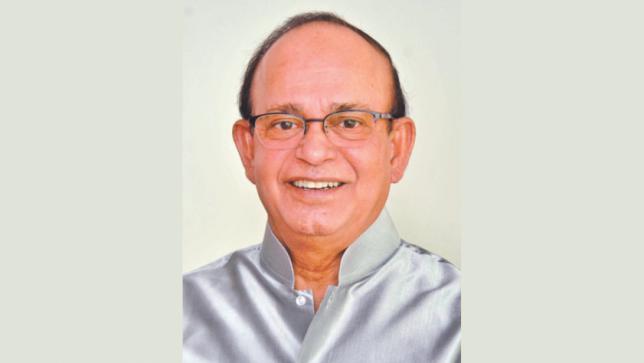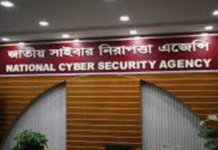Environment minister rules out fear of harm to the mangrove forest
Sundarbans, a magnificent and unique ecosystem of the world, faces an existential question today with a coal power plant to be set up at Rampal. It has been a content of discord between environmentalists and those who are pushing the plant. Both sides are giving out their own arguments in favour of and against the plant to be set up within 14km of the mangrove forest. The Daily Star wants to bring to the public the arguments and the counterarguments that the protagonists and antagonists of the plant have to make.Today we publish an interview of Environment and Forest Minister Anwar Hossain Manju on the issues of Rampal power plant.
Pinaki Roy and Hasan Jahid Tusher took the interview.
The Daily Star (TDS): The Sundarbans is already threatened by the global climate change. Wouldn’t the construction of the Rampal power plant harm the mangrove forest even more?
Minister: There are a numbers of factories and silos near the Sundarbans. I have a question for people opposing the Rampal power project and the civil society: why are they not making any statements against those factories?
Salinity is the real threat to the Sundarbans, not the Rampal project. You are aware that the government has been dredging different rivers to increase the flow of fresh water around the mangrove forest.
Almost all the countries including Bangladesh are being harmed due to climate change. It’s not only the Sundarbans; areas of North Bengal have also been affected. Vessels carrying coal will not go through the Sundarbans.
More and more studies will be done to understand whether the forest will be harmed or not. If it is considered harmful then there is no Bangladeshi who will say yes to this project.
https://youtu.be/nyD6lwbjuZU
TDS: The EIA report says that because of coal transportation by the Passur river the Sundarbans and its wildlife will be affected. It has recommended taking some preventive measures.
Minister: Thousands of ships are plying the oceans. Are not the sea and marine lives harmed? There are some island nations in the oceans that are also harmed.
TDS: Can the oceans and the Sundarbans considered the same?
Minister: It is the same. I’ll say the whole earth is being harmed and for this reason, climate conferences are being held and measures have been recommended. Developed nations are now pledging to reduce activities harmful to the environment. They are also promising to help the developing countries to cope with climate change aftermaths.
We are paying attention to the discussions and criticisms centering the project. The head of the government will consider these opinions but she will also have to lead the development of the country. For industrial development and growth, we need a stable supply of electricity. But that does not mean the government has already decided to go ahead with the project no matter the harm to the Sundarbans. The head of the government has not made any such pledge.
TDS: So, will the government consider relocating the Rampal power plant if the Sundarbans were harmed?
Minister: The head of the government or those who run the country do not take a decision and stick to it no matter what.
TDS: Can it be said that the government is considering relocating the power project from Rampal?
Minister: National and international studies could not specifically say that the Sundarbans will definitely be harmed if the plant is built at Rampal. Rather, they said there are probabilities of harm and made some recommendations and wanted answers to different questions.
TDS: Would the Sundarbans be affected when a lot of mother vessels and lighterage vessels start plying through the forest carrying coal?
Minister: Coal will be transported by rail.
TDS: But the government EIA does not say that coal will be transported via rail. Rather, it noted the possibility of damages from coal transported by the Passur river.
Minister: The impact studies are using available statistics and figures. At the same time, the government is working in its own way. Only the Prime Minister will know about them. She is overseeing the whole issue. So, I can firmly say that the coal might come through rail route.
TDS: There are other options too. If we can import coal then we can also import eco-friendly gas for the power plants.
Minister: You should talk to the state minister for power about the government’s plan to transform Maheshkhali into an energy hub. The crude oil we import today will be brought through the energy hub. Gas will also be brought through the hub. Gas is still needed for industries.
TDS: A coal-fired power plant at Rampal will emit various toxic gases that will spread throughout the Sundarbans. It will also generate fly-ash and toxics effluents will go to the Passur river that will ultimately harm the forest.
Minister: This has been discussed at the highest level of the government. Fly ash also helps make our soil fertile.
TDS: Various industries are being set up around the Sundarbans. The environment ministry has given approval to some 150 industrial units there. These industries are being set up there because of the Rampal power plant. There is the grain silo. Then there is the Rampal power plant. Won’t these development projects destroy the Sundarbans? Why are the ministries approving these factories?
Minister: We are not renewing any licenses that have expired. It is a significant number. A portion of the global climate change funds will be used to increase the efficiency of factories that will reduce harm to the environment.
TDS: Don’t you think that the Sundarbans will be affected if the power plant is built with the existing technology?
Minister: Can you kindly show me any study or document that specifically says the Sundarbans will definitely be affected? We shall conduct studies to assess whether the Sundarbans will be affected or not.
Be assured that the head of the government, whose family made highest sacrifices for the country, won’t do anything that will harm the country and I, without speaking to her, can assure that.
TDS: What would be done if there were risks?
Minister: There is no absolute proof that it will be harmful. Those who are concerned about the project did not come up with any specific point.
TDS: Why are we not amending our law like India that no power plant would be allowed within 25km of the Sundarbans?
Minister: Do you think the Sundarbans on the Indian side would be unaffected if it were harmed here? If yes, neither India nor we’ll do that. But we have a need for electricity. We shall have to save the environment and at the same time we have to carry out development works.
TDS: Can’t we construct gas-based or other kinds of power plants than this coal-fired one near the Sundarbans?
Minister: Why are you leaving out the option of coal-based power plants?
TDS: Does the Rampal power plant have to be built near the Sundarbans? Why not elsewhere?
Minister: It is not proved without a doubt that the place is risky. If it is proved [risky] though studies and after studies, then our head of government would certainly not do it. But till today, there is no report which definitely said it [risky].
TDS: But common people are worried about the Sundarbans. How will you address their concern?
Minister: If the government is convinced that the people have a legitimate concern then it will address it. This is a political government, not a government of technocrats. So the government of the people will speak people’s language.
TDS: Why is Bangladesh intent on building the power plant at Rampal?
Minister: Why are you thinking the power plant must be set up at Rampal? Why are you not thinking it will not be set up there? If it is proven that it will cause harm, I firmly believe the chief executive of the government would not do it.
TDS: What do you say about UNESCO’s concern?
Minister: UNESCO did not express any specific concern. It rather recommended to the government to look into some matters related to the environment. Which bank would come forward to invest money on the Indian company that would jointly implement the project if it were risky?
TDS: It is heard that coal would be imported from India for the power plant.
Minister: The quality of Indian coal is not good as its sulfur content is higher than coal of other countries like Indonesia. We shall buy coal where it is cheap and of a better quality. This country belongs to all of us. Our generation will not do anything that will harm the country and its people. Be assured of it.
TDS: Will the ministry of environment take initiative to conduct any such study?
Minister: As far as I know, three ministries—power, environment and shipping—will sit together and prepare a report and then we shall sit with the Principal Secretary to the Prime Ministers’ Office. He will listen to the three ministers and take notes for the PM.
Those who are opposing the Rampal power plant want good for the environment and the country and we, the government can’t go against that. This is not West Pakistan and East Pakistan era. This is Bangladesh and we all should build it together.
TDS: How will you manage fly-ash, which an expert say will fall into the Passur river?
Minister: Have you been to Munshiganj where every house is coated white with fly-ash from nearby cement factories? Does anyone want no development to take place in the country?
TDS: Do you think those who are protesting the plant are doing it from an anti-Indian stance?
Minister: The answer is no. They are Bangladeshis and they are showing concerns out of patriotism. I won’t presume that foreigners are giving money to them. Let us have an open mind. Neither they nor we are influenced by foreign countries over the project.
TDS: Will it be possible to increase the numbers of tigers as Bangladesh promised in a global tiger conference few years ago if the Rampal power plant is constructed?
Minister: Two tiger cubs have born already. Salinity is rather of more concern to us. If we can’t stop salinity in the Sundarbans, the deer will die and tigers will leave. Where would the tigers go? The Indian part of the Sundarbans is also affected by salinity.
TDS: Now it seems that the government will certainly implement the project as the BNP has extended support to the movements against the project.
Minister: The number one in the government has not taken it personally. She does not take any emotional decision being influenced by anyone’s position or acts.
Source: The Daily Star










